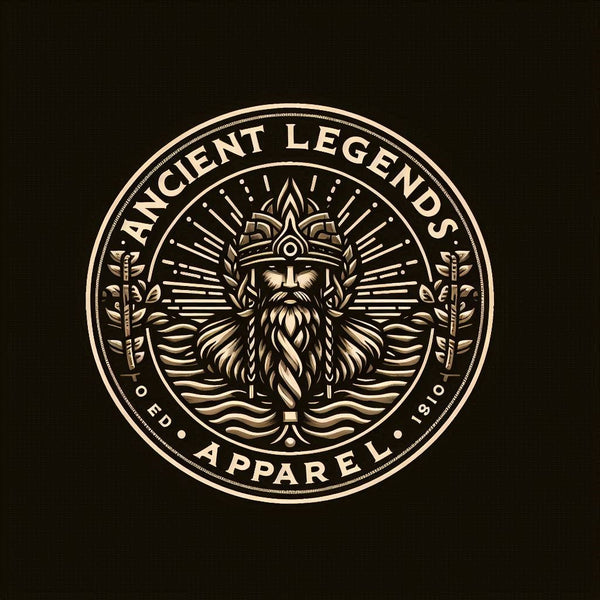Top 5 Gods or Goddesses of Mythical Birds
Karl FShare
INTRODUCTION
The mythology of ancient cultures offers a treasure trove of captivating gods and goddesses who assumed avian forms or were closely associated with feathered creatures. Many of these deities were believed to partake in the creation of the world, instigate natural phenomena, and govern the fate of humans. From the fierce, warlike falcon Horus of Egyptian mythology to the clandestine, nocturnal owl goddess, Athena, from Greek lore, birds have continually flown through the mythic dreams of humankind across geographical and temporal boundaries. This article delves into a fascinating investigation and ranking of the Top 5 Gods and Goddesses of Mythical Birds, analyzed based on their origin, cultural importance, complexity of the narrative, illustrations in various other cultures, and their modern echoes in popular culture.
ORIGIN AND CULTURAL CONTEXT
PHOENIX (Ancient Greece and Egypt): The Phoenix, an immortal bird bursting in resplendent flame, has its roots in Ancient Greek and Egyptian folklore, symbolizing renewal, resurrection, and eternal life. The mythology of the Phoenix tells of a bird with a lifespan of 500 years after which it combusts and rises anew from the ashes.
HORUS (Ancity Egypt): The ancient Egyptian God Horus, commonly depicted as a falcon, represents the sky, war, hunting, and royalty. Often shown as a man with a falcon's head, Horus played a crucial role in maintaining Ma'at – the ancient Egyptian concept of truth, balance, order, law, morality, and justice.
GARUDA (Hindu Mythology): The Garuda, revered as the king of birds in Hindu mythology, is described as a giant bird with golden body and wings, and a human face. Born of the mighty sage, Kashyapa, and his second wife, Vinata, Garuda embodies power, righteousness, and unfathomable loyalty.
THOTH (Ancient Egypt): Thoth, in ancient Egyptian mythology, is attributed as the creator of writing, magic, wisdom, and the moon. Often portrayed as a man with the head of an ibis or a baboon, Thoth served as a meditator between good and evil.
ATHENA (Greek Mythology): Athena, the Greek goddess of wisdom, courage, and strategic warfare, is often associated with the owl, a symbol of knowledge and erudition. Daughter of Zeus, she emerged fully grown and armed from his forehead.
THE LEGEND OR STORY
The legends of these bird-imbued deities weave a complex tapestry of tales that were used to explain natural phenomena, impart moral lessons, and guide societies. The phoenix exists forever in a cycle of self-destruction and recreation, combusting into fiery ashes only to rise anew. Horus avenges his father Osiris by overcoming his evil uncle Seth in a fierce battle, reinstating Ma'at, signifying the triumph of order over chaos.
Garuda's tale is one of devotion and redemption. He saves his mother Vinata from slavery under his step-mother Kadru by stealing the elixir of immortality, 'Amrita', from Heaven, demonstrating undying loyalty and integrity. Thoth, revered as one of the most wise and intellectual deities, helps maintain the universe's balance by reconciling feuding gods, arbitrating divine disagreements, and guiding souls in the afterlife. Athena, sprung from the forehead of Zeus, uses her wisdom to invent the bridle, providing humans the ability to tame horses for their benefit.
INTERPRETATIONS AND SYMBOLISM
Bird gods and goddesses are loaded with rich symbolism. The phoenix, emblem of renewal and transformation, stands for cyclicality, highlighting nature's regenerative capacity. Horus symbolises kingship, war, protection, and healing, embodying the pharaoh's power. Garuda signifies courage, strength, dedication, and righteousness, acting as a deterrent against serpents, capturing the eternal rivalry between birds and snakes.
Thoth, the divine scribe, underscores knowledge, wisdom, and mediation's vital role in civilisation. Athena, with her owl, epitomizes intelligence, composure, and military strategy, promoting civic viability and harmony.
COMPARISONS IN OTHER CULTURES
Apart from their primary cultures of origin, these avian deities find similarities across various cultures. The phoenix with its death-and-rebirth cycle is echoed in Hinduism's firebird, the 'Bennu'. Similarly, Horus finds parallels in the Zuni culture's 'Kolowisi', a plumed serpent representing water.
Garuda is revered in Buddhism and Jainism, embodying the power and speed of the sun. Thoth's critical attributes find a mirror-image in Hermes, the messenger god in Greek mythology. Athena's nocturnal owl is paralleled in ancient Roman goddess Minerva's symbolism.
MODERN REFERENCES AND POP CULTURE
These mythical bird gods and goddesses continue to permeate modern tales and iconography. The phoenix has become a universal symbol of rebirth and resilience, often seen in literature and film, such as 'Harry Potter'. Horus frequently appears in computer games, fantasy novels, and television series like 'Stargate'.
Garuda can be famously found in the Final Fantasy game series and as Indonesia's national symbol. Thoth is portrayed in Rick Riordan's book series, 'The Kane Chronicles', and Athena's owl is synonymous with wisdom, emphasised in its adoption as the symbol of a number of educational institutions worldwide.
LEGACY AND LASTING MYSTERIES
The legacy of these mystical avian deities extends beyond their captivating legends and iconography, creating a space for vibrant cultural expression and exploration of existential mysteries. Their enduring relevance is a testament to the continuing human fascination with the natural world, our place within it, and the mysteries of life, death, and regeneration.
As these deities continue to inspire art, literature, philosophy, and popular culture, they also fuel ongoing learning, interpretation, and debate. Their longevity and continuing resonance affirm the lasting power of myth and symbol to elucidate some of human existence's most profound and persistent questions. From the illuminating tales of the phoenix's cyclical rebirth to the intricate moral narratives of Garuda and Athena, the Gods and Goddesses of Mythical Birds continue to fly, forever inscribing their wisdom and mystery on the heart of human culture.
